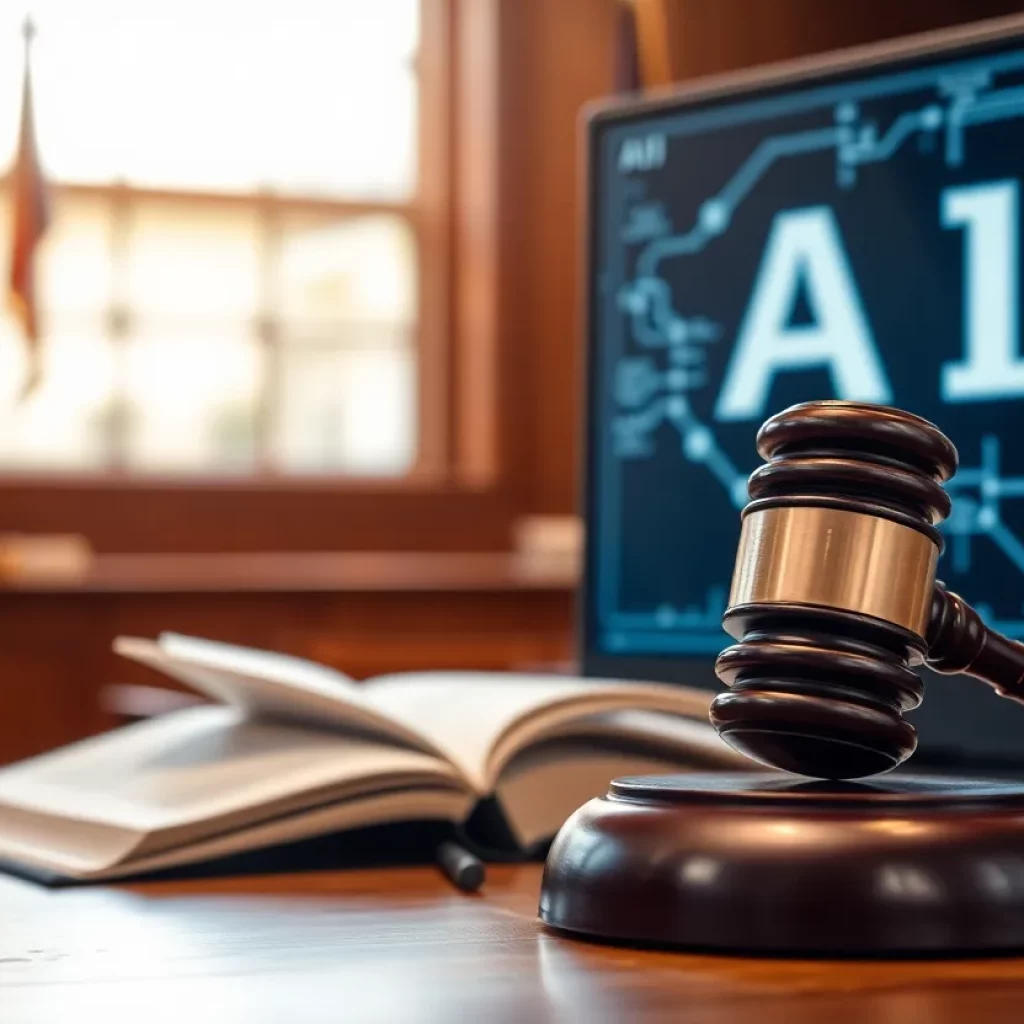News Summary
Richard Bednar, a Utah lawyer, is facing sanctions from the state Court of Appeals after submitting a brief with false AI-generated citations. The article discusses the implications of AI in legal practice and emphasizes the need for attorneys to verify all information before submission. The case reflects broader concerns within the legal community about the reliability of AI tools in legal filings, particularly in maintaining professional integrity.
Attorney Faces Sanctions After Relying on AI-Generated Citations
Utah Lawyer’s Use of ChatGPT Leads to Legal Troubles
In a shocking turn of events, **_Richard Bednar_**, a lawyer practicing in Utah, has found himself facing serious sanctions from the state Court of Appeals after a false citation incident connected to the use of artificial intelligence (AI) in legal filings. The case underscores a growing concern about the integration of AI into legal practices, with repercussions that could affect attorneys nationwide.
The issue arose when Bednar submitted a brief that included references to a fictitious court case named **_“Royer v. Nelson”_**. This unreality was not just an innocent mistake; it was a direct result of Bednar utilizing **_ChatGPT_** as a tool to assist with the filing process. A significant lapse in judgment occurred when it was revealed that the brief had been primarily crafted by an **_unlicensed law clerk_** at his firm, a graduate of law school, who was later terminated due to the incident.
In an unfortunate twist, the brief failed to undergo any meaningful verification before it was submitted. In today’s legal landscape, attorneys bear the ultimate responsibility for ensuring the accuracy of their submissions, and Bednar’s oversight has put a wrench in his professional credibility. Legal experts have pointed out the need for attorneys to exercise thorough diligence, irrespective of the tools used to prepare legal documents.
During a recent hearing, Bednar acknowledged the **_errors in the petition_** and took full responsibility for the content. He expressed remorse for the consequence of his actions and was forthcoming in admitting that he had relied too heavily on the AI-generated content without sufficient investigation.
The court documents were clear: **_numerous citations were AI-generated_** and not only did they refer to non-existent cases, but some of them also focused on entirely unrelated legal matters. This raises alarming questions about the reliability of AI in legal settings and emphasizes that even sophisticated tools like ChatGPT can generate erroneous information.
Bednar’s colleague, **_Douglas Durbano_**, was not implicated in the brief’s creation and has stood apart from the fallout, which makes it clear that Bednar himself is squarely to blame for the incident. The court recognized that there was no intent to deceive, which somewhat mitigated the penalties imposed.
However, the repercussions are still significant. As a part of the sanctions, Bednar must cover the attorney fees for the opposing counsel related to the **_false petition and hearing_**. Moreover, he is mandated to refund any fees clients paid concerning the problematic filing. Bednar has also been ordered to make a **_$1,000 donation to “And Justice For All”_**, a nonprofit organization providing essential legal services to low-income residents of Utah.
The controversy surrounding the use of AI in legal documents has generated a substantial dialogue within the legal community. Prominent attorneys in the state have voiced concerns over the increasing reliance on technology in legal research and filings. They emphasize the crucial need for attorneys to **_meticulously verify_** all references and information, regardless of their source.
In response to this growing trend, the **_Utah State Bar_** is actively engaging with legal practitioners on developing ethical standards surrounding AI applications in law. Meanwhile, Bednar’s case serves as a cautionary tale, reminding lawyers of their responsibilities to maintain the integrity of the judicial process.
Further complicating Bednar’s situation is his history with the Utah State Bar. In 2012, he faced disciplinary action resulting in a three-year suspension of his law license, stemming from multiple complaints from military service members regarding his failure to deliver on promised legal services.
As the legal community continues to navigate the integration of AI into daily practice, the lessons learned from Bednar’s missteps will surely resonate widely, reminding all attorneys that technology can assist but never replace the fundamental obligations of legal rigor and ethical accountability. The implications of this case will likely reverberate as lawyers across the country assess their use of AI and the potential risks involved.
Deeper Dive: News & Info About This Topic
HERE Resources
Lawyer’s AI Blunder in High-Profile Case Against Journalist
Lawyers Embrace AI for Case Value Evaluation
Texas Lawyer Faces Scrutiny Over AI-Driven Filings
Lawyer Wins Case Against Toll Lane Violation in Colorado
Federal Judge Exonerates Lawyer in AI Citation Error Case
North Charleston’s City Council Faces Corruption Scandal
Additional Resources
- ABC4 News
- The Guardian
- The Salt Lake Tribune
- BBC News
- NBC News
- Wikipedia: Legal Research
- Google Search: AI in Legal Practice
- Google Scholar: AI in Law
- Encyclopedia Britannica: Legal Profession
- Google News: Lawyer Sanctions AI
Author: STAFF HERE CHARLESTON
The CHARLESTON STAFF WRITER represents the experienced team at HEREcharleston.com, your go-to source for actionable local news and information in Charleston, Charleston County, and beyond. Specializing in "news you can use," we cover essential topics like product reviews for personal and business needs, local business directories, politics, real estate trends, neighborhood insights, and state news affecting the area—with deep expertise drawn from years of dedicated reporting and strong community input, including local press releases and business updates. We deliver top reporting on high-value events such as the Spoleto Festival USA, Charleston Wine + Food Festival, and the MOJA Festival. Our coverage extends to key organizations like the Charleston Metro Chamber of Commerce and the Charleston Museum, plus leading businesses in tourism and maritime industries that power the local economy such as South Carolina Ports Authority and the Charleston Visitor Center. As part of the broader HERE network, including HEREaiken.com, HEREbeaufort.com, HEREchapin.com, HEREcharleston.com, HEREclinton.com, HEREcolumbia.com, HEREgeorgetown.com, HEREgreenwood.com, HEREgreenville.com, HEREhiltonhead.com, HEREirmo.com, HEREmyrtlebeach.com, HEREnewberry.com, HERErockhill.com, HEREspartanburg.com, HEREaustin.com, HEREcollegestation.com, HEREdallas.com, HEREhouston.com, and HEREsanantonio.com, we provide comprehensive, credible insights into South Carolina's dynamic landscape.










